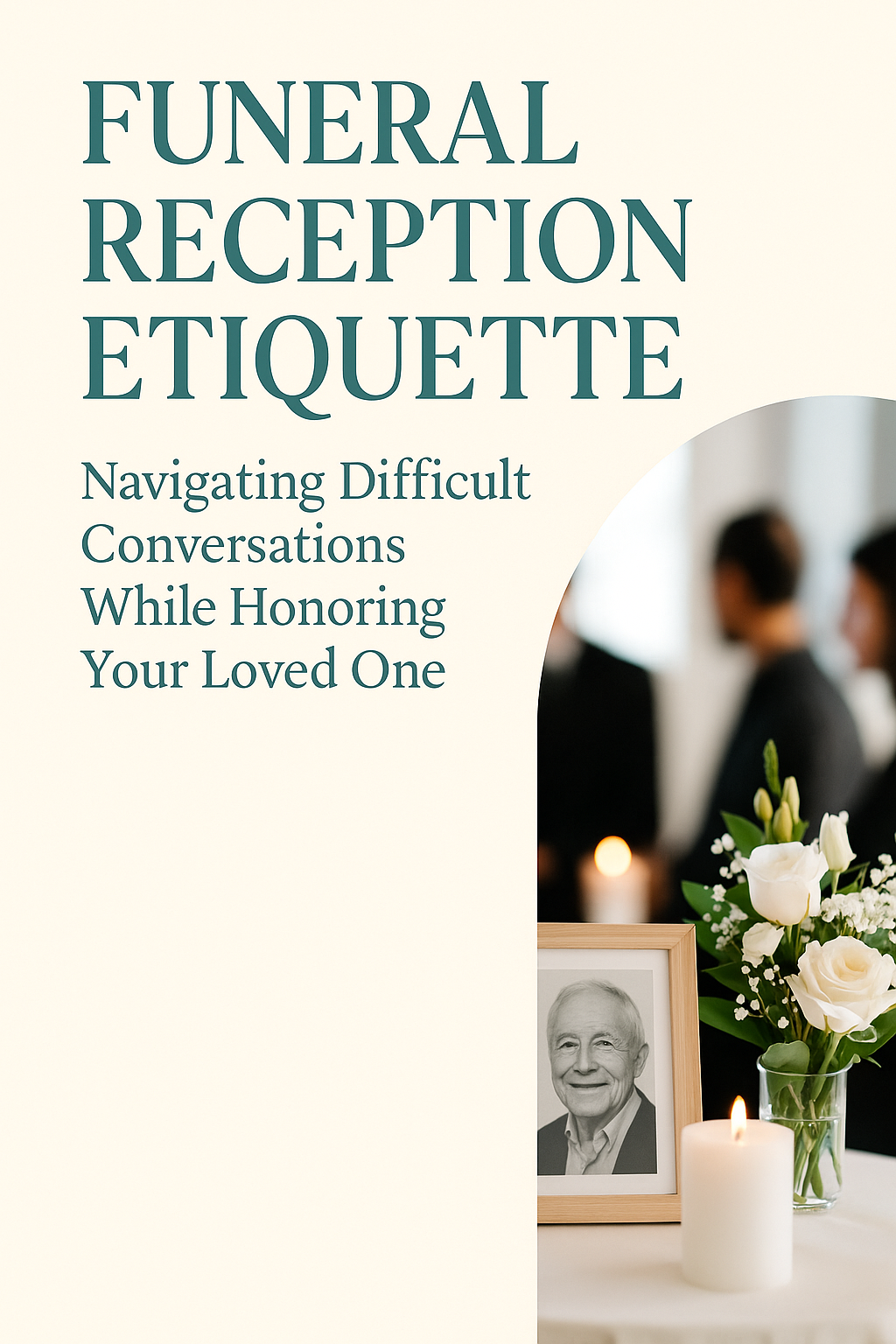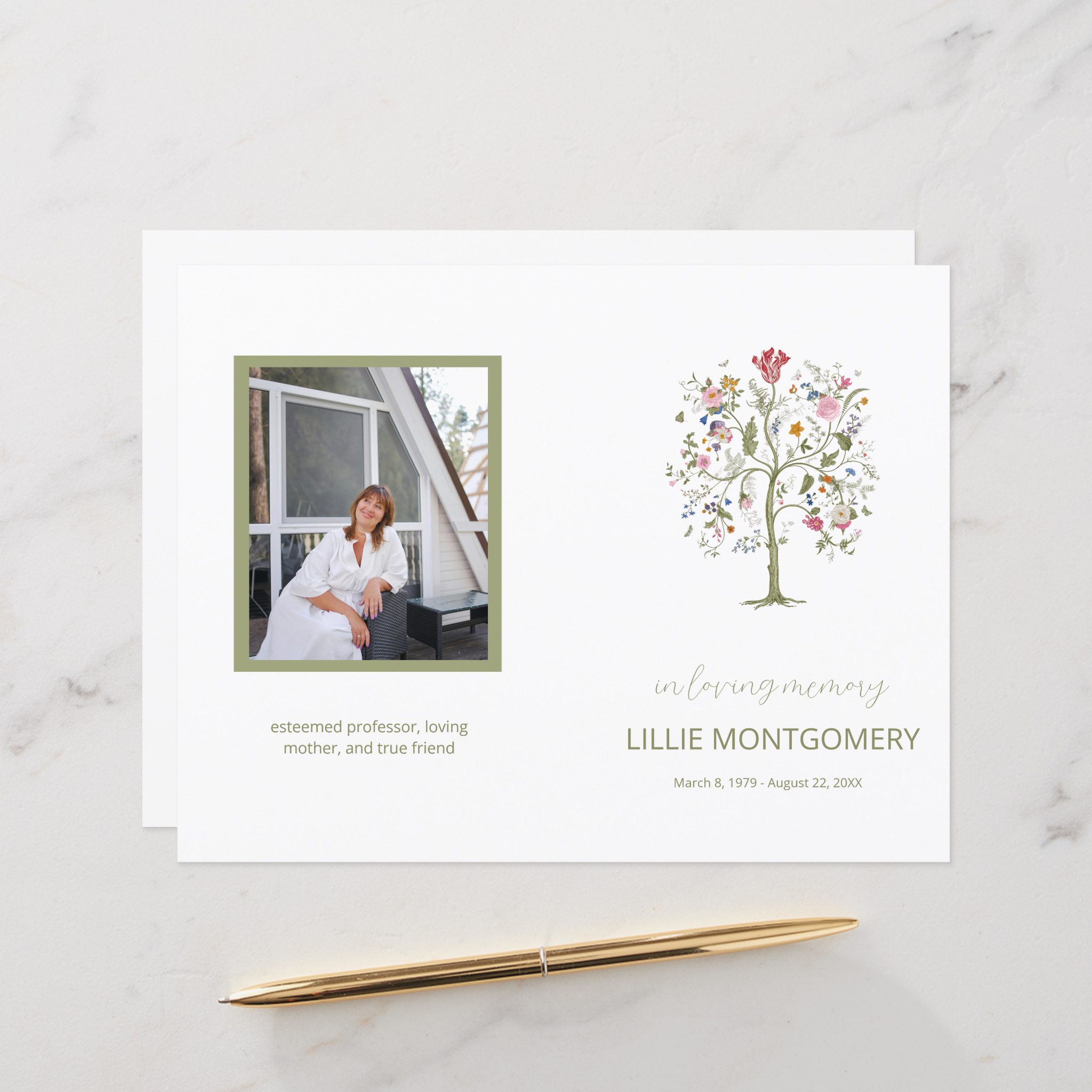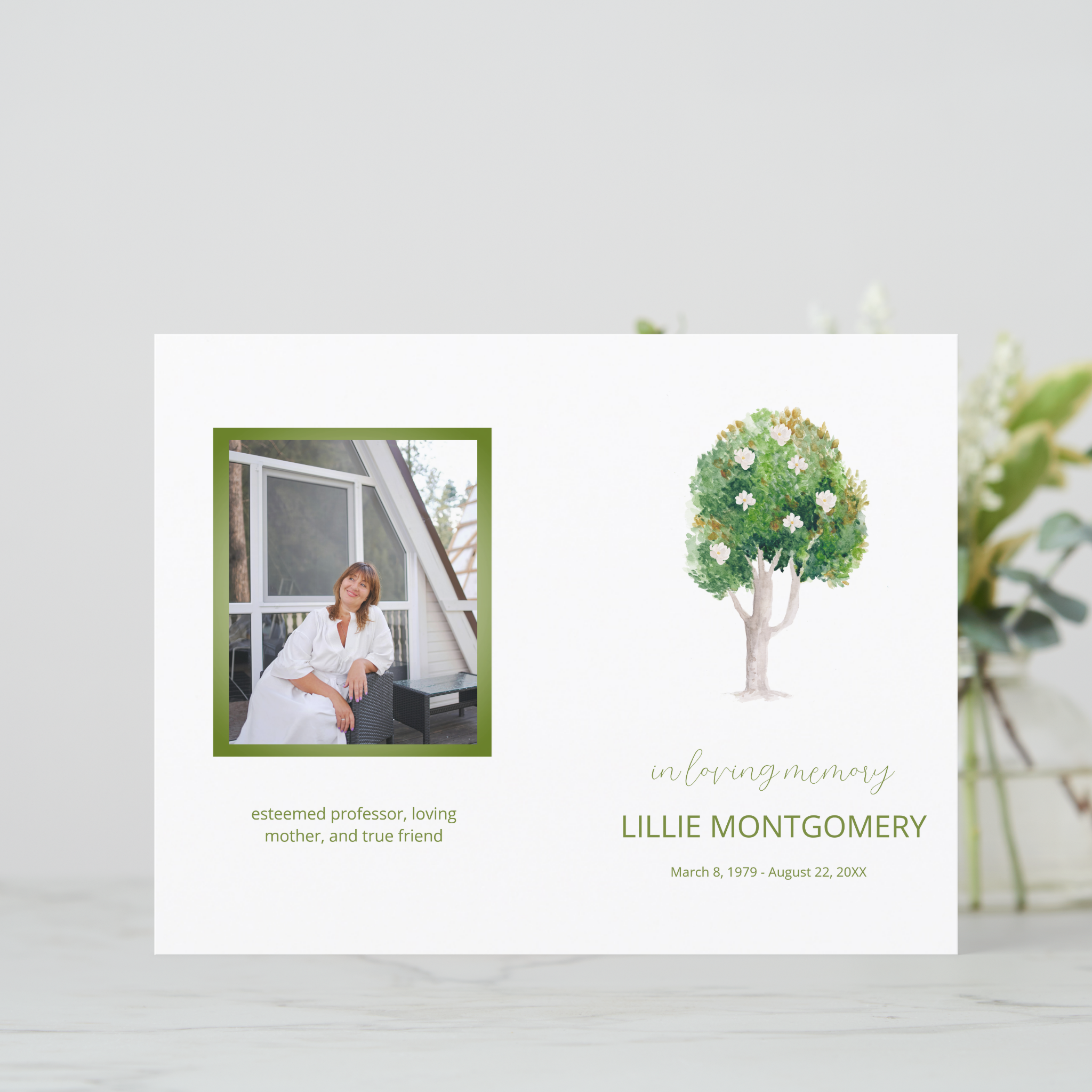We may earn money or products from the companies mentioned in this post. As an Amazon Associate I earn from qualifying purchases. Disclosure of Material Connection: Some of the links in this post may be "affiliate links." This means if you click on the link and purchase an item, I will receive an affiliate commission.
Funeral Reception Etiquette: Navigating Difficult Conversations While Honoring Your Loved One
Losing a loved one is a deeply emotional experience, and a funeral reception serves as a space for collective mourning, remembrance, and healing. However, these gatherings can also bring unexpected challenges, particularly when navigating sensitive or difficult conversations. Whether it’s addressing family tensions, answering questions about the cause of death, or managing disagreements over arrangements, knowing how to handle these moments with grace is essential to maintaining a respectful atmosphere.
This guide offers practical advice for balancing honesty with compassion during a funeral reception. You’ll learn how to steer challenging discussions, honor cultural traditions, and create an environment where guests feel supported in their grief.
1. The Role of a Funeral Reception: Setting the Tone for Remembrance
A funeral reception is more than a post-service gathering—it’s an opportunity to:
-
Celebrate the life of the departed through shared stories and memories.
-
Provide comfort to grieving family and friends.
-
Foster connection among attendees, many of whom may be reuniting after years apart.
Understanding this purpose helps frame interactions. While emotions may run high, the focus should remain on honoring the deceased and supporting one another.
2. Common Difficult Conversations at Funeral Receptions
Certain topics are more likely to arise during these gatherings. Being prepared can help you respond thoughtfully:
A. Family Conflicts
Disagreements over inheritance, unresolved grudges, or differing opinions on funeral arrangements may surface.
-
Why it happens: Grief can amplify existing tensions.
-
How to navigate: Politely acknowledge feelings without taking sides:
“This is a tough time for everyone. Let’s focus on supporting each other today.”
B. Questions About the Cause of Death
Guests may ask for details, especially if the death was sudden or involved sensitive circumstances.
-
Why it happens: Curiosity or concern, but the question can feel intrusive.
-
How to navigate: Respond with brevity and redirect:
“We’re still processing everything, but we appreciate your kindness.”
C. Financial or Legal Discussions
Inquiries about wills, estate plans, or funeral costs are common but often inappropriate.
-
Why it happens: Concern for the family’s well-being or personal interest.
-
How to navigate: Set boundaries gently:
“We’re not discussing those details today. Thank you for understanding.”
3. Tips for Navigating Difficult Conversations with Grace
A. Practice Active Listening
-
Allow others to express their feelings without interruption.
-
Use phrases like, “I hear how much this hurts,” to validate emotions.
B. Set Boundaries Firmly but Kindly
-
If a topic feels off-limits, say:
“Let’s save that conversation for another time. Today is about remembering [Name].”
C. Designate a “Peacekeeper”
-
Assign a trusted friend or family member to discreetly mediate tense interactions.
D. Use Distraction Tactics
-
Shift focus by inviting guests to share a favorite memory or view a photo album.
4. Handling Sensitive Topics: What to Say (and Avoid)
What to Say
-
When someone apologizes for missing the service:
“Your presence here means so much. Thank you for coming.” -
When faced with unsolicited advice:
“I appreciate your concern. We’re taking things one step at a time.”
What to Avoid
-
Minimizing grief: Avoid phrases like, “They’re in a better place,” unless you know it aligns with the family’s beliefs.
-
Comparing losses: Saying, “I know how you feel,” can feel dismissive. Instead, try, “I’m here for you.”
see these books: The Perfect Stranger’s Guide to Funerals & Grieving
5. Cultural and Religious Considerations in Funeral Etiquette
Customs vary widely, so research or ask about traditions in advance:
-
In some cultures: Open displays of emotion are encouraged; in others, stoicism is expected.
-
Religious practices: Some faiths prohibit certain foods, music, or attire.
Tips:
-
Include a note in the invitation about dress code or rituals.
-
Consult a religious or community leader if unsure.
6. Supporting Grieving Family Members: Do’s and Don’ts
Do’s
-
Offer specific help: “Can I bring dinner tomorrow?” vs. “Let me know if you need anything.”
-
Acknowledge the loss: Simply saying, “I’m so sorry,” can be powerful.
Don’ts
-
Press for details: Avoid probing questions about the death or family dynamics.
-
Overstay your welcome: Keep visits brief unless invited to linger.
7. Creating a Safe Space for Shared Memories
Encourage positivity by:
-
Setting up a memory table with photos, letters, or keepsakes.
-
Including interactive elements like a guestbook for written tributes.
-
Playing the deceased’s favorite music to evoke comforting nostalgia.
see these books: The Perfect Stranger’s Guide to Funerals & Grieving
Balancing Honesty and Compassion
Funeral receptions are a testament to the love and legacy of the person who has passed. While difficult conversations may arise, approaching them with empathy and clarity ensures the event remains a heartfelt tribute. Remember, it’s okay to prioritize emotional well-being over politeness in moments of tension.
By setting boundaries, honoring cultural traditions, and focusing on shared memories, you can create a space where healing begins and connections deepen. In the end, what matters most is that your loved one is remembered with dignity and love.
See the first article of this series, The Complete Guide to Funeral Receptions
one more thing… check out these related articles:






